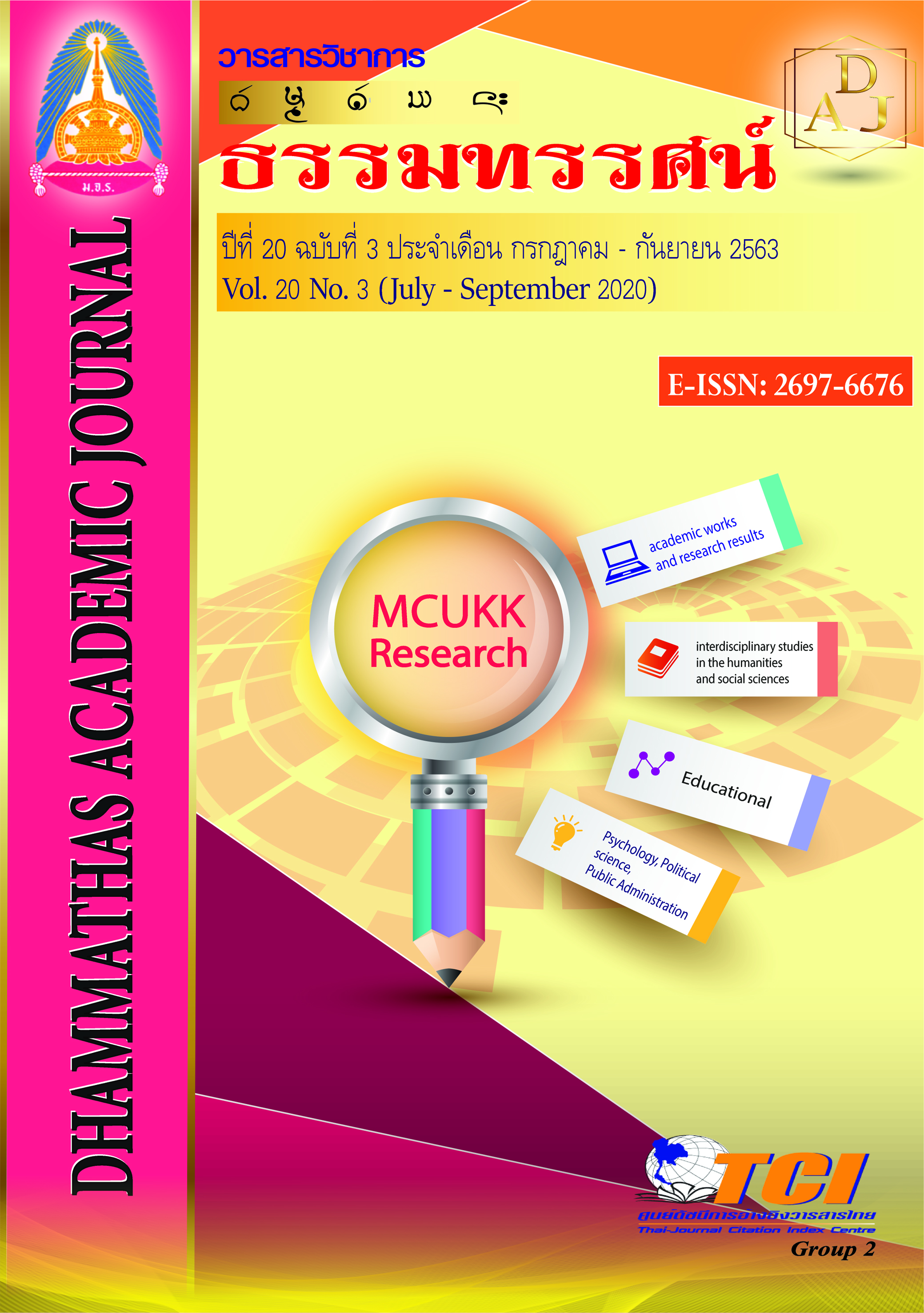The Development of Knowledge Management Model for Local Wisdom of the Elderly School in the Province of Phetchabun
Main Article Content
Abstract
The purposes of this research were: 1) to study knowledge management of local wisdom of the elderly school in Phetchabun province; 2) to develop the knowledge management model of local wisdom of the elderly school in Phetchabun province; 3) to present knowledge management of local wisdom of the elderly school in Phetchabun province, number of 134 people by the quantitative method of selection.
The result of the research shows that: respondents about the development of knowledge management model for local wisdom of the elderly schools in Phetchabun Province in general, it is at a medium level. When considered in each aspect, it was found that the opinions of the respondents regarding the development of knowledge management model for local wisdom of the elderly schools in Phetchabun province at the very level of agreeing in amount of 1 aspec Is management in the level of agreeing with the level of 6 aspects, namely the process of knowledge management leadership the opportunity of learning the networking aspect of work technology and the supervision of the government.
Article Details
References
Kaewdang, R. (1999). divides Thai wisdom into 2 levels, namely national wisdom or Thai wisdom
with local knowledge or folk wisdom.
Kanjanaprasert, N. (2002). studied local wisdom in the production of utensils using
technology by the villagers of Phitsanulok and Sukhothai provinces.
Kamthammo, P. (referred to in Panurat, A. (2006). gave the meaning of wisdom.
Lorsuwan, T. (2006). Organization of knowledge. Bangkok: Rattanathai Publishing.Na Thalang,
E. and Others .(1996). The Wisdom and Learning Process of Thai Villagers Project Kittimethee Nonthaburi, Department of Education Sukhothai Thammathirat Open University.
Sangsorn, S. (2007). Local knowledge and building a learning society. Journal of Educational
Science, TU. 2 (3), 99-100.
Sangsri, S. and others. (2007). Research Project for the Development of the Quality of Life of
the Elderly in the Application of Knowledge and The experiences of the elderly to
benefit society (copy).
Sangsri, S. (2007). Local Knowledge and Creating a Learning Society In Journal of Education,
Thammasat University, Year 2, Issue 3 (June 3 - November 2007), pages 99-100.
Sioi, .(2013). who studied about The synthesis of knowledge, knowledge, weaving, Ban Noen
Kham to learn that. The process of transferring knowledge of weaving of Ban Noen
Kham community. At the individual level, it is the transfer of knowledge from mother to children, relatives from neighbors, close to the one-on-one transfer at the community level. Relay from government agencies and private sector.
Teffi. (Tekfi, 1992, p. 4128-A). studied the archives of the National Archives of Algeria. Data
were collected using questionnaires, interviews, observations and experiences of those involved with the LG Archives.
Thamwat, J. (1992). has given meaning to local wisdom or local knowledge that knowledge
resources Human resources that exist in each locality, which may be unique or a
universal feature that many locals have in common.
The Department of Academic. (1995). states that local wisdom, or folk wisdom, is the
knowledge that comes from the experience in the lives of people who have gone through the process of studying, observing, analyzing, causing problems and crystallizing them into knowledge. Up from many specific knowledge. The subjects are not separated into specific sciences and therefore are considered the basis of modern knowledge. That will help in learning, problem solving, management and adjustment in life.
The Royal Institute Dictionary 2542 B.E., meaning wisdom.
Thai Encyclopedia For the Golden Jubilee Youth. (Book no. 23), it means that "Thai Wisdom"
(Thai Wisdom) means knowledge, ability, methods, works that are collected and stored as knowledge by transferring from one generation to another. Until it is a product that is good, valuable, useful, can be used to solve problems and improve life.
Wichianpanya, P. (2004). Knowledge Management: Fundamentals and Applications, Bangkok:
Dharmakol Printing.
Yotsyingyong, K..(2006). 23-36. Lorsuwanrat, T. knowledge can change status at any time
depending on the situation which will create new knowledge. By passing the knowledge process or SECI Model 2005: 73-75).

